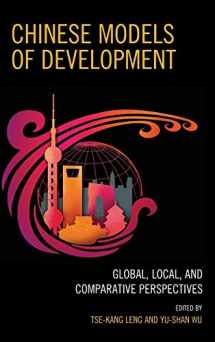
Chinese Models of Development: Global, Local, and Comparative Perspectives (Challenges Facing Chinese Political Development)
Book details
Summary
Description
Discussion of the “Chinese Model” abounds with the rise of China. This volume analyzes the Chinese case in a theoretical framework, provides an evolutionary perspective, and compares it with other models of development. Instead of focusing on one specific case, the book's contributors shed light on the application of theories of international relations, comparative politics, and development studies to the topic under deliberation. This book reflects that the “uniqueness” of the Chinese model should also be put in an historical and evolutionary context. It also provides insights into comparisons with other models of development, such as the East Asian model and experiences of the former Soviet Union. The authors in the book argue that while globalization constrains state power, it may also open new windows of accommodation and adjustments. Linkages between the domestic dynamics of development and external forces of change become pertinent in understanding the Chinese models of development.


We would LOVE it if you could help us and other readers by reviewing the book
Book review



